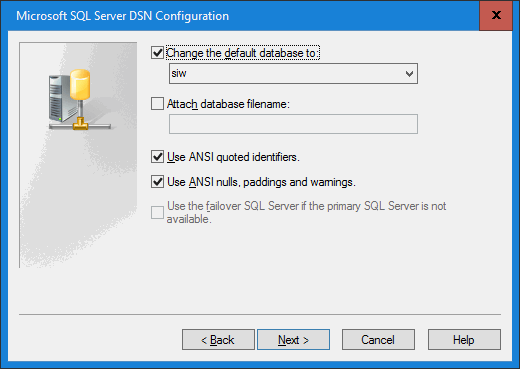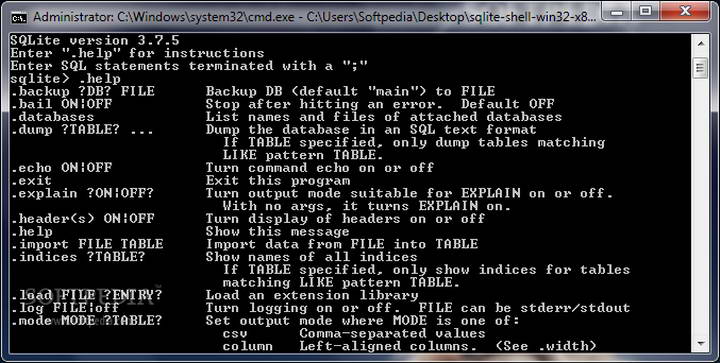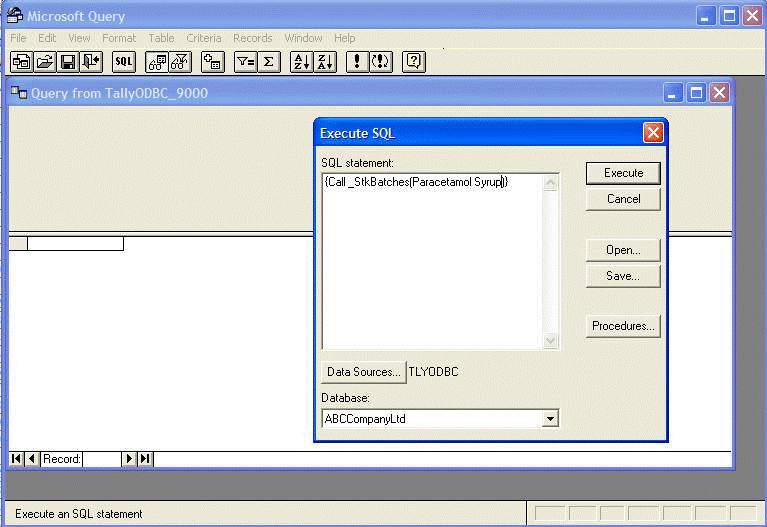

Ln -s /usr/local/lib/ /usr/lib/libsqliteodbc.soĭriver = /usr/local/lib/libsqlite3odbc.so Yes | cp sqliteodbc.h sqlite3odbc.h sqlite4odbc.h /usr/include/ Mixing bitedness within a single process (called in-process thunking) was IBM patented technology and as such Microsoft was required to remove it from Windows NT when they "converted" OS/2 into Windows NT.īy the time the patents expired on this technology all the 64-bit bittybox Operating Systems had implemented independant per-process virtual machines that only ran a specific memory model, and used a trampoline to access the Operating System.Īs a result, only a few "big metal" Operating Systems from IBM support in-process thunking - everything else applies the same model to all parts of a process, requiring the duplication of in-process bits where multiple models are supported.Sqlite3, sqlite3-devel, unixODBC, unixODBC-devel
#Sqlite3 odbc drivers#
If you have processes (programs) of differing memory models that require ODBC, then you must have duplicate ODBC drivers installed - one for each supported process memory model. The same applies for anything else that loads in-process. That is to say that if you are using 64-bit MS-ACCESS you need 64-bit ODBC, and if your MS-ACCESS is 32-bit, then you need 32-bit ODBC. That means that the bitedness of the ODBC crud must match the bitedness of the program that is using ODBC. The above contains several links for your convenience in acquiring background information on using SQLite3 programatically.
#Sqlite3 odbc 64 Bit#

You do NOT need to download SQLite3 executables or libraries.
#Sqlite3 odbc driver#
Werner's driver to be useful over the years since he began publishing it. I do not know what "the correct ODBC drivers" are for SQLite, but I can attest that I have found Mr.

If that is the case, you can either find and stop or kill that process, or rename the DLL to something like "delete_me_soon" and retry your installation.

Perhaps you are already running some process that has loaded that DLL, causing it to not be overwritable. This leads me to think you have some unique, local problem. I had no trouble whatsoever running Christian Werner's sqliteodbc_w64.exe program a few minutes ago, and it created the said directory and left a bunch of files there, including the same sqlite3odbc.dll which, apparently, could not be written during your installation attempt. (If that pretense is false, you have successfully dodged my question and avoided the likely useful implications of a direct answer to it.) I will pretend that your "I" refers to the sqliteodbc_w64.exe process as you ran it and granted its requested privilege elevation, and that it could then either create its installation directory or alter its content.


 0 kommentar(er)
0 kommentar(er)
